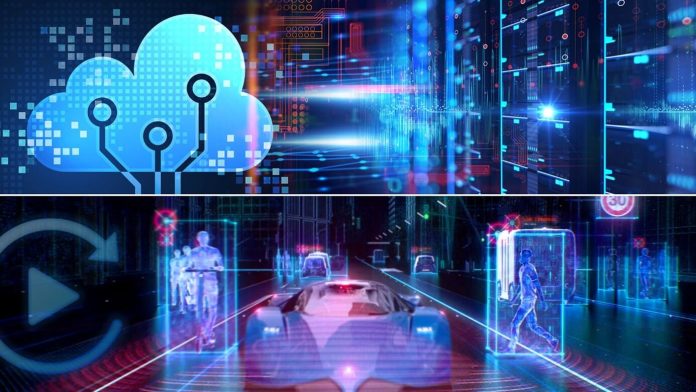The global automotive artificial intelligence market size is expected to reach USD 14.23 billion by 2030, advancing at 21.6% CAGR, according to a new report by Grand View Research. Artificial Intelligence (AI) in the automotive industry is driven by factors such as government initiatives to incorporate autonomous driving and the growing demand for autonomous vehicles. Furthermore, the automotive industry’s expansion is likely to drive the artificial intelligence market’s growth. The automotive sector has benefitted from artificial intelligence and is one of the primary industries that use AI to augment and replicate human action.
Key Industry Insights & Findings:
- The features of autonomous vehicles powered by AI, such as self-driving, autopilot, and automatic parking are widely adopted due to their low human intervention requirements.
- Market growth is positively impacted by the introduction of vehicle tracking software allowing for real-time tracking of vehicles at different locations.
- Automotive manufacturers’ investments in AI and LiDAR have responded to the growing demand for intelligent vehicles, which has driven growth across the entire industry.
- Asia Pacific is anticipated to witness the highest CAGR during the forecast period. Growing economies along with massive population will drive the growth.
Automotive Artificial Intelligence Market Growth & Trends
The advent of standards such as Advanced Driver Assistance Systems (ADAS), blind-spot alert, Adaptive Cruise Control (ACC), and increased demand for convenience features continue to attract automotive providers to AI. AI mission-critical occurrences necessitate analysis, warnings, and directives. Automotive ADAS comprises various advanced sensors, such as LiDAR, Inertial Measurement Units (IMUs), radar, cameras, and pressure and temperature sensors for constant monitoring of surrounding conditions. The signal chain necessitates proper conditioning of sensor outputs, detection, and reliable low-latency communications within the vehicle and the surrounding infrastructure.
AI has enormous potential in the automobile industry when embedded within the industry’s products, production, manufacturing processes, and value-added chains. AI deployment is expected to contribute significantly to a safer, cleaner, more efficient, and more reliable mobility ecosystem. For instance, AI applications in connected and automated vehicles improve driver safety, monitoring, situational awareness, comfort, and trajectory prediction. It can lead to significant gains in performance and efficiency, such as enhanced logistical flows, traffic fluidity, and reduced fuel or power consumption.
In recent years, businesses manufacturing Automated Driving Systems (ADS) technology have thoroughly live-tested autonomous vehicles operating in virtual environments to assure their dependability and safety. However, the COVID-19 pandemic, which began in March 2020, prevented, disrupted, and delayed the launch of these new product development test objectives due to its sudden beginning and continued resurgent impacts.
A study published by Adrian Chen Yang Tan on March 10, 2022, used data from the California Automated Vehicle Test Program to ascertain how the pandemic impacted testing trends, resumptions, and test conditions. The study emphasized how crucial it is for government measures to encourage and facilitate the development of autonomous vehicles in pandemic situations.

